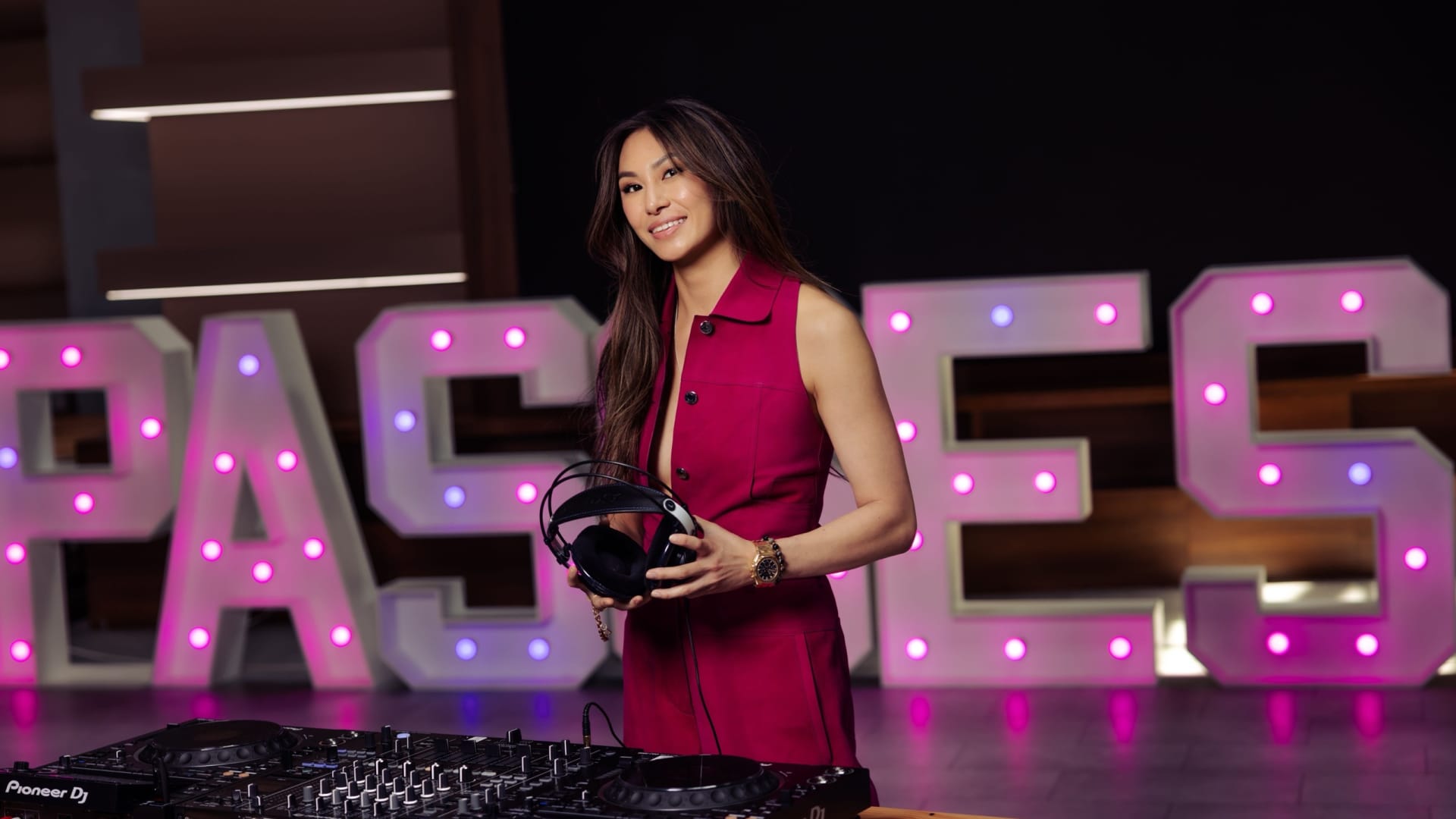Lucy Guo, founder and CEO of Passes.
Passes
Serial entrepreneur turned billionaire Lucy Guo shared that growing up with frugal parents motivated her to start hustling from the early days of her childhood.
The thirty-year-old was recently named Forbes’ youngest self-made billionaire with a net worth of $1.3 billion, after her first business, Scale AI, was acquired by tech giant Meta in a deal that valued the AI data labelling company at $25 billion.
The young entrepreneur is currently the founder of content creator monetization platform Passes, launched in 2022. She also founded a venture capital firm, Backend Ventures, in 2019, which invests in early-stage tech startups.
Guo’s roots go back to Fremont, California, where she grew up with Chinese immigrant parents.
“I think my parents always emphasized the importance of education and money, so on the education side, I was definitely forced to have good academics. They threw me into Abacus competitions,” Guo told CNBC Make It.
This led to her studying computer science and human-computer interaction at Carnegie Mellon University, but she dropped out after two years, to the dismay of her education-minded parents. She only had one year left to complete her degree.
“They [parents] sacrificed everything to immigrate from China to America to give their kids a better future, and because education gave them everything that they have in life, for their kids to suddenly let go of their education when they were almost done was like a slap in the face,” she said.
Guo instead decided to pursue the Thiel Fellowship, a program launched by the billionaire co-founder of PayPal, Peter Thiel, which offers young people $200,000 to build innovative companies.
“I think they [parents] viewed that as a sign that I didn’t love them, and they weren’t very happy with it, when it was just me making a bet on myself and choosing to optimize for what I thought would be a better future for myself.”
Making money on the playground
Becoming an entrepreneur was a natural path for Guo, who was already hustling in elementary school and searching for ways to make money. Her parents led ‘a very frugal life,’ she said.
“But they always emphasized that having money is important, so I would find ways to make money on the playground,” Guo said. “I would up trade Pokémon cards and then sell them. I would sell colored pencils, anything I could find.”
Guo’s parents were strict and took her cash away if she wasn’t behaving. So, in second grade, Guo went to Home Depot and got a debit card, opening a PayPal account to store her cash.
Her money-making endeavors progressed as the years went on. A fan of the Neopets game, she took to forums to sell virtual Neopet creatures and in-game Neopoints currency.
“I would get rare pets, rare items, and resell them for actual cash,” she said.
When she discovered engineering and coding, she started making bots to cheat in a game and sell them.
“I then started finding other ways to make money on the internet from making websites using Google AdSense, then creating internet marketing tools…it just snowballed from there.”
‘Only fun I could have was on a computer’
Guo said that her success developed from a passion for video games, which fostered an interest in computer science.
“I think I’m a pretty social person, but because I wasn’t really cool or allowed to be social, I pretty much spent all my time on computers growing up,” Guo said. “The only fun I could have was on a computer.”
She said kids who spend time playing video games generally try to figure out how to be better at the game.
“Video games are why a lot of these students study computer science…the same happened for me, where I was like, ‘How do I create my own game? How do I be[come] better at this game?'”
She added: “I think that if I were more cool in school and I was allowed to have sleepovers and allowed to hang out with friends and allowed to play sports, things would look different.”
Guo’s entrepreneurial spirit instead brought her among Forbes’ ranks of billionaires — although some of her ventures have drawn scrutiny.
Recently, a class action lawsuit was brought against Guo and her company, Passes, claiming that she allegedly distributed child sexual abuse material on the platform to paying subscribers.
“As explained in the motion to dismiss filed on April 28, Ms. Guo and Passes categorically reject the baseless allegations made against them in the lawsuit, which was only filed against them after they rejected a $15 million payment demand,” a spokesperson for Passes said in a statement.
Clark Smith Villazor, the New York-based litigation firm that filed the lawsuit against Passes, has yet to respond to CNBC’s request for comment.





